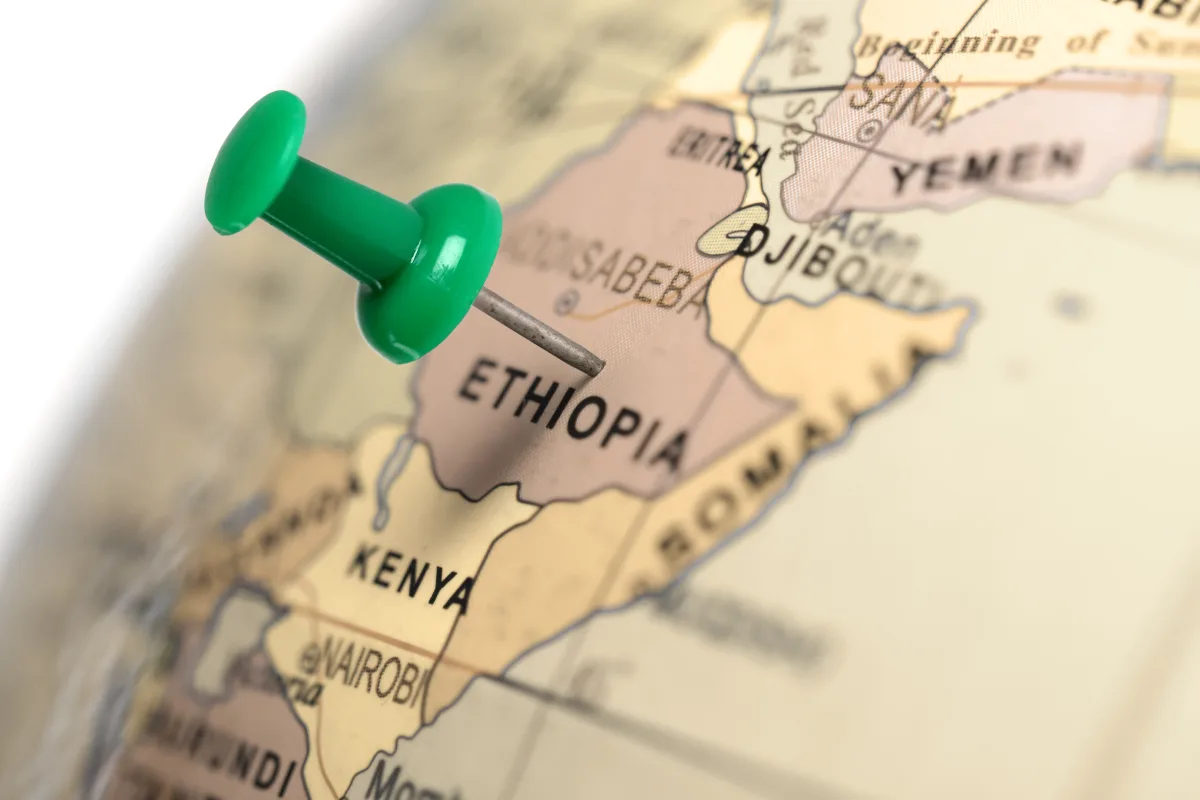Ethiopia failed to pay a $33m bond coupon on Monday and looks set to become the latest African country to default on its debt unless a restructuring agreement can be found with international bondholders within the 14-day grace period. A call is scheduled for Thursday with Ethiopia’s creditors to try and find a last-ditch agreement, but markets now expect Ethiopia to join Zambia and Ghana as Africa’s latest debt defaulters.
Only two weeks ago, the governor of the National Bank of Ethiopia told the Ethiopian parliament that the country had secured over $1.5bn in temporary debt relief from its international creditors, leading to speculation that Ethiopia would avoid default.
Earlier this year, Ethiopia’s largest single creditor, China, allowed the East African country to suspend debt repayments on bonds maturing in the 2023-24 fiscal year. Ethiopia also has relatively low levels of external debt compared to other countries which have defaulted.
But Ethiopia’s finance ministry said on Friday it was “not in a position to pay” the $33m coupon because of the nation’s “fragile external position.”
Hailemelekot Berhan, a capital markets in analyst in Addis Ababa, tells African Business that “Ethiopia is not really a debt distressed country” and the looming default is therefore likely the result of a breakdown in communication with private bondholders.
“It seems that Ethiopia has concluded restructuring agreements with Paris Club members and China, but private bondholders and international investors have not agreed to the same terms,” he says.
“This situation may have come about because of insufficient or ineffective communication with these bondholders. Government officials working in this area may not have the appropriate knowledge or experience of going about these things.”
However, Philip Pilkington, an investment professional and senior research analyst at GMO in London, notes that this default may be the result of Ethiopia’s “consistent current account deficits” and high exposure to international debt markets.
“I have noticed that Ethiopia has lower external debt ratios than they have had in the past, but that said, the country has run consistent current account deficits since the mid-1990s and in recent years these have become large and consistent,” Pilkington tells African Business.
“It appears that the country is funding its growth through the issuance of securities denominated in the currencies of other countries. I would surmise that they are currently experiencing problems due to interest rates rising on this debt as central banks raise rates to tackle inflation. This is a problem we often see in developing economies.”
A dent to Ethiopia’s capital-raising hopes
While the precise cause of the default is disputed, Berhan fears that the situation could severely dent Ethiopia’s hopes to attract foreign capital – and could even undermine Abiy Ahmed’s long-term liberalisation plans.
“Ethiopia is not particularly debt burdened and the repayment amount of $33m is very small. But the consequence of a default nonetheless is that investors are going to get really worried,” he says. “The government is liberalising sectors like finance and gearing towards attracting foreign direct investment, but it is very tough to do that successfully when the country is defaulting.”
Pilkington is also concerned about Ethiopia’s economic trajectory in light of the default. “The worst-case scenario is that the large increases in per capita GDP Ethiopia has seen in the last decade or so might be reversed, as markets stop allowing them to fund their large current account deficits,” he argues. “But all this will depend on how the situation is managed.”
Geopolitical implications
He adds that the default could have significant geopolitical as well as economic implications for Ethiopia – and believes that there is now an opportunity for BRICS countries “to offer members financing on friendlier and less punitive terms than the International Monetary Fund (IMF)”.
“When Ethiopia joined the BRICS, it was already clear that they were having financial difficulties,” he says. “I would infer from this that the BRICS leaders are aware that Ethiopia is likely facing down a crisis – and this leads me to wonder if they have a strategy to deal with this that will further the goals of the BRICS.
“What we can say is that just after Ethiopia joined the BRICS in August, China suspended payments on its debt and Ethiopia is now using the China deal as a template for negotiations with other creditors. This highlights that, at the very least, the new BRICS formation is introducing ‘competition’ into geo-economic relations. This is an important development.”
Want to continue reading? Subscribe today.
You've read all your free articles for this month! Subscribe now to enjoy full access to our content.
Digital Monthly
£8.00 / month
Receive full unlimited access to our articles, opinions, podcasts and more.
Digital Yearly
£70.00 / year
Our best value offer - save £26 and gain access to all of our digital content for an entire year!

 Sign in with Google
Sign in with Google 



